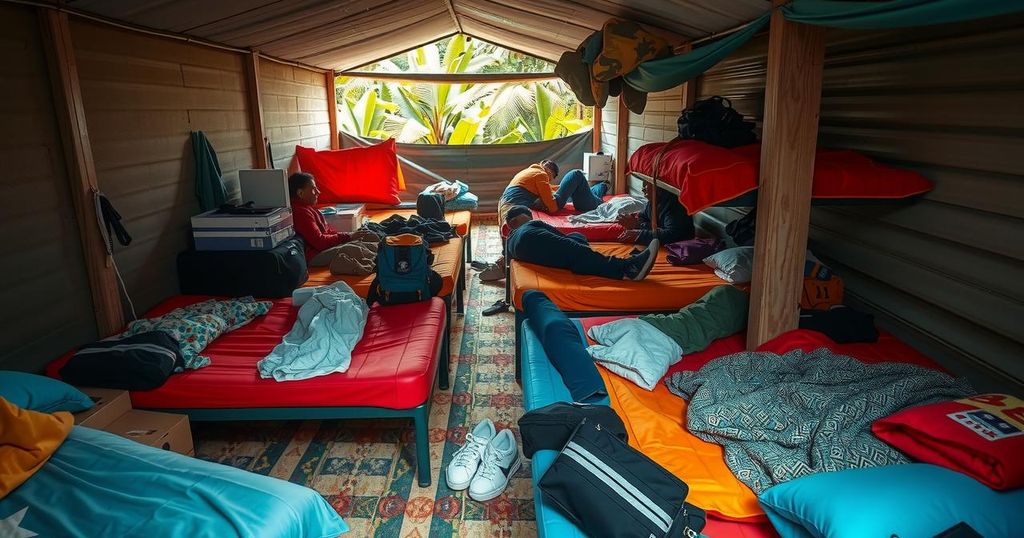Afghan Deportees in Costa Rica Face Dire Threats if Returned Home
Marwa, an Afghan deportee in Costa Rica, fears returning home due to Taliban threats. Along with her husband and daughter, she is one of many migrants caught in limbo following U.S.-led deportations. Despite being given basic amenities, their freedom is restricted, raising serious human rights concerns. Advocates urge Costa Rica to reconsider its complicity in these deportations while deportees express a profound desire for safety and autonomy.
In Costa Rica, Afghan deportee Marwa, alongside her family, grapples with the fear of being sent back to Afghanistan due to the Taliban’s threat to her life. She recounts her desire for education, personal freedom, and safety, stating, “If I go back, I will die. The Taliban will kill me. I lost my father and my uncle there.” This sentiment echoes through the Temporary Migrant Care Center, where approximately 200 migrants await their uncertain fates.
Under the Trump administration, legal entry routes to the United States were curtailed, leading to a significant uptick in deportations from various countries, including Afghanistan and Iran. Current conditions have left 74 deportees repatriated, with more than a hundred remaining in limbo, suspended between unwillingness to return home and lack of asylum alternatives in Costa Rica. Marwa expresses her anguish over the language barrier and cultural disconnection, raising concerns for her family’s future.
Marwa and her husband’s harrowing journey from Iran through numerous perilous countries culminated in their arrival in the U.S., where they faced mistreatment by officials. Similarly, others like Iranian Alireza Salimivir and Russian German Smirnov cite fear of violence and persecution as reasons for their desire to remain in safety. Smirnov shares apprehensions regarding his potential imprisonment or conscription in Russia, highlighting the dire stakes they face.
Deportees at the care center experience restrictive conditions despite basic amenities, as their passports are withheld, inhibiting their freedom. Former diplomat Mauricio Herrera criticized this situation, asserting that it represents a serious human rights setback for Costa Rica. Several organizations, including Human Rights Watch, have urged Costa Rica to reconsider its complicity in U.S. deportation policies, warning against developments that compel refugees back into danger.
Marwa’s resolve remains strong as she envisions a life free from oppressive norms. She firmly states, “I choose and I want to be like this,” revealing her desire for autonomy and rejecting a life constrained by unyielding traditions for either herself or her daughter. As she navigates her confinement with her family, her determination for a brighter future is palpable, and the uncertainty of their fate looms heavily.
The plight of Afghan deportees in Costa Rica illustrates the complex issues surrounding immigration and human rights. Individuals like Marwa face severe threats to their safety if returned to their homelands. As they await uncertain outcomes in Costa Rica, the international community calls for recognition of the serious implications of U.S. deportation policies, emphasizing the need for support and protection for those fleeing persecution.
Original Source: ticotimes.net








Post Comment